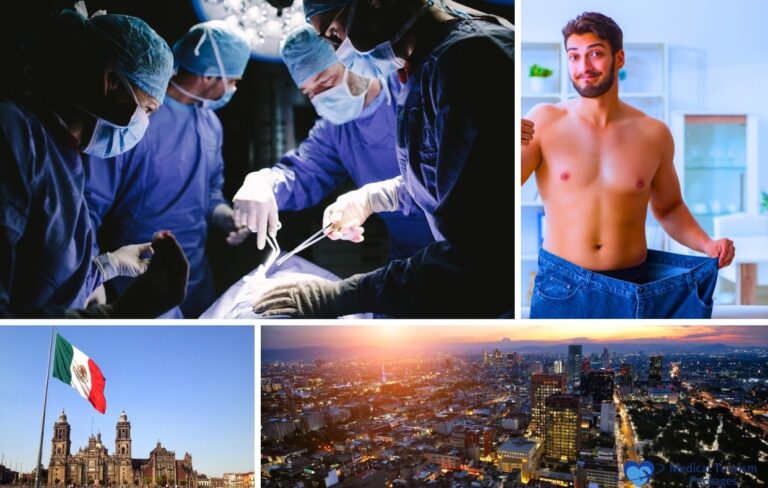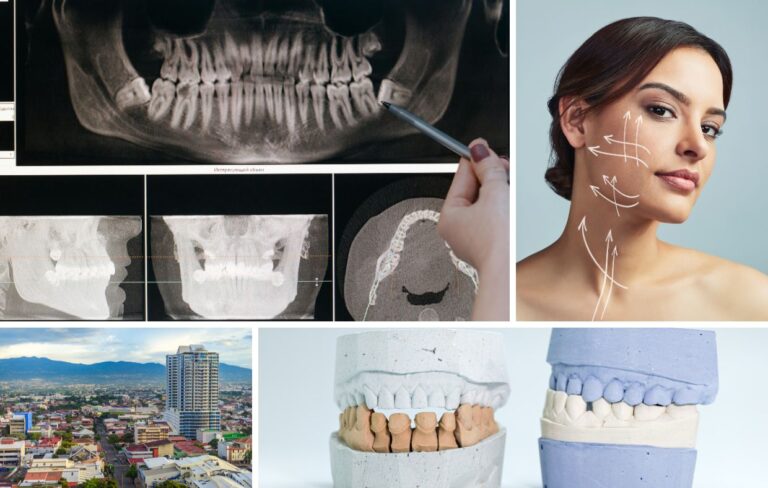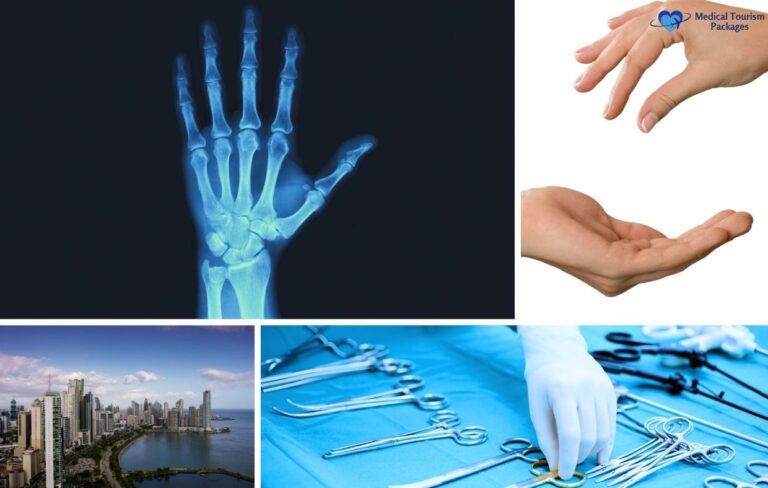Book Appointment Now
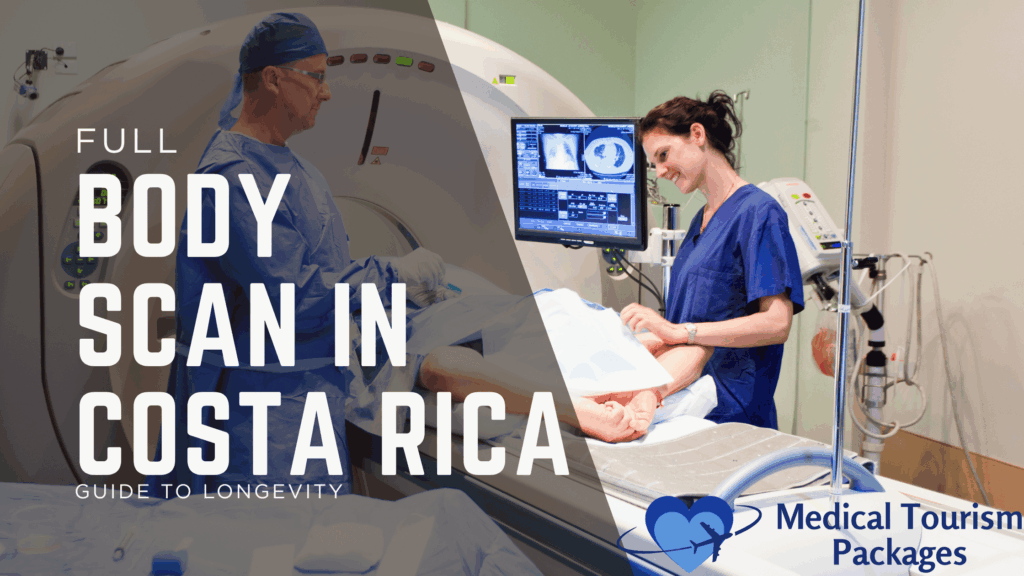
Full Body MRI Scan in Costa Rica: Early Detection for Health, Wellness & Longevity
You’re looking at $5,000 to $12,000 for a full body MRI in the United States. In Costa Rica? The same scan, same quality, costs $500 to $900. That’s not a typo.
The price difference is just the beginning. Costa Rica’s hospitals carry the same Joint Commission International (JCI) accreditation as top U.S. medical centers, making it a trusted destination for American medical tourists. Their radiologists have trained at renowned institutions like Pierre and Marie Curie University in Paris and Hadassah Medical Center in Jerusalem. Plus, you can typically get an appointment next week, not next month.
What is a Full Body MRI Scan: Technical Specifications and Clinical Applications
A full body MRI uses magnetic fields and radio waves to capture detailed images of your internal structures—every organ, every tissue, head to toe. No radiation. No needles (unless contrast dye is needed). Just 60 to 90 minutes in the scanner while it produces its characteristic knocking sounds.
Here’s what happens during the scan. The machine runs different sequences to detect various conditions:
T1-Weighted Imaging provides your anatomical roadmap. Fat appears bright, fluid appears dark. This creates the baseline image.
T2-Weighted Imaging highlights areas of concern. Tumors, inflammation, and anything with excess water content shows up bright. This is where physicians identify problems.
STIR sequences suppress fat signals entirely. Excellent for detecting bone marrow problems that would otherwise be hidden by fatty tissue.
FLAIR imaging specializes in brain examination. It suppresses normal brain fluid signals so abnormalities near the ventricles remain visible.
Advanced Diffusion-Weighted Imaging Technology
Hospital Metropolitano offers something notable: Whole-Body Diffusion-Weighted MRI. Think of it as a cancer detection map. Tumors contain densely packed cells that restrict water movement. The scanner detects this restriction and highlights these areas clearly.
It delivers similar information to a PET scan without the radioactive injection. Same diagnostic value, zero radiation exposure.
What Gets Scanned in a Full Body MRI
A comprehensive scan covers everything: brain, spine (all three sections), heart, lungs, liver, kidneys, pancreas, spleen, blood vessels, and soft tissues. These machines can detect lesions as small as 2mm—smaller than a peppercorn.
Costa Rica’s Premier MRI Centers: JCI-Accredited Excellence
| Hospital | JCI Accreditation | Key Features | Special MRI Offerings |
|---|---|---|---|
| CIMA San José | 5th consecutive Gold Seal (Jan 2021) | • U.S.-owned (Dallas) • 25%+ international patients • Direct billing: AETNA, Cigna, TRICARE | Full diagnostic imaging suite |
| Clínica Bíblica | 15+ years continuous | • Founded 1929 • Ochsner Medical affiliation • Dedicated medical tourism dept | “Cuerpo Entero” (Whole Body) imaging |
| Hospital Metropolitano | Status requires verification | • Locations in tourist areas • Research institute • Value-focused pricing | Both 1.5T and 3T MRI Whole-Body Diffusion-Weighted MRI |
MRI Technology: 1.5T vs 3.0T Systems
Tesla strength is a key factor. Like megapixels on a camera, higher numbers deliver sharper, more detailed images.
| Feature | 1.5 Tesla | 3.0 Tesla |
|---|---|---|
| Best For | • General whole body scans • Patients with metal implants • Longer scan sessions | • Brain and spine detail • Small lesion detection • Faster scan times |
| Advantages | • Less heating during scans • Fewer artifacts • More comfortable for long scans | • Double the magnetic strength • Sharper images • Quicker acquisition |
| Availability | CIMA (Philips Intera 1.5T) | Hospital Metropolitano |
| Patient Comfort | Better for claustrophobic patients | May feel warmer |
Modern machines feature 70cm bore openings compared to the older 60cm tubes. That extra 10cm makes a significant difference for claustrophobic patients. Weight capacity extends to 550 pounds (250kg), accommodating virtually all patients.
Full Body MRI Cost Analysis: Costa Rica vs International Markets
In Costa Rica, you’ll pay $500 to $900 for the complete package:
- The scan
- Radiologist reading
- Written report in English
- Digital images on USB
- Follow-up consultation
To put this in perspective, Cenrad charges approximately $115 just for reading a single MRI. The $500-900 package price represents genuine value, not hidden à la carte pricing.
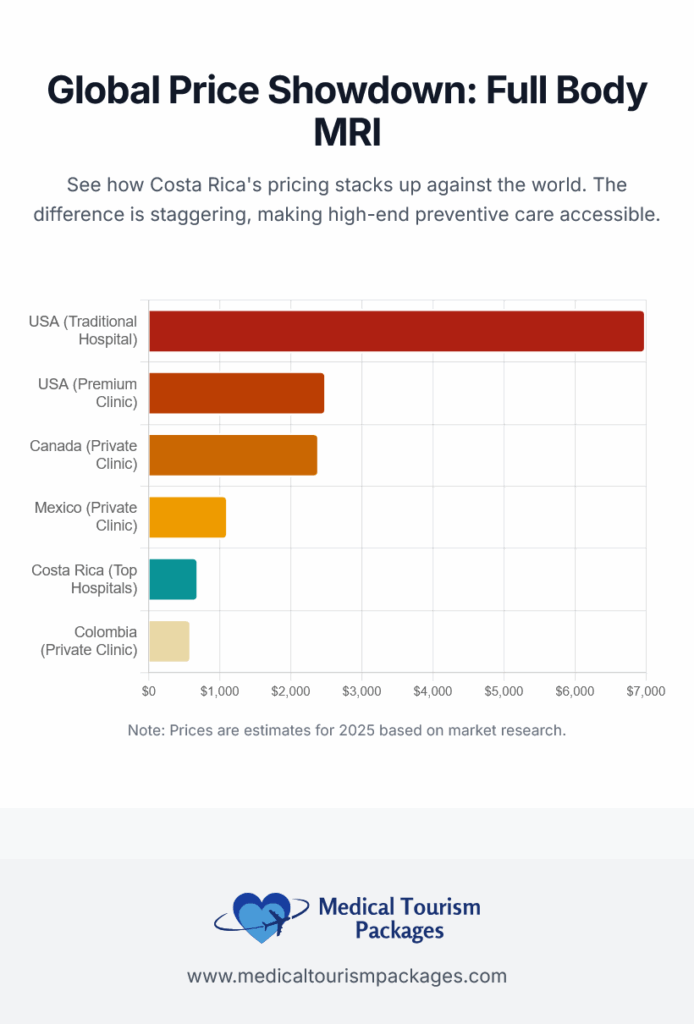
Global Price Comparison 2025
| Location | Provider Type | Price (USD) | Notes |
|---|---|---|---|
| Costa Rica | Top Private Hospitals | $500-900 | All-inclusive package |
| USA | Traditional Hospital | $2,000-12,000 | Insurance rarely covers screening |
| USA | Prenuvo (NYC) | $2,499-4,499 | Premium screening clinic |
| USA | iVIE (LA) | $2,300 | Screening clinic |
| USA | Ezra | $499 | AI-enhanced, limited availability |
| Canada | Private Clinics | $2,400-2,700 (CAD 3,250-3,600) | Toronto/Vancouver |
| Mexico | Mexico City | $400-1,117 | Varies by facility |
| Panama | Private Hospitals | $500-850 | USD currency |
| Colombia | Major Cities | $450-1,500 | Most price-competitive |
Ezra made waves in May 2025 with their $499 price point. For a deeper look at how medical tourism costs compare to U.S. healthcare, the savings extend well beyond MRI scans. However, securing an appointment can be challenging. Their AI technology reads the scans rather than subspecialists, and navigating U.S. healthcare customer service remains a challenge.
Costa Rican Radiologist Expertise
These radiologists have legitimate credentials. Consider where Costa Rica’s radiologists completed their training:
- Mammary Radiology fellowship in Madrid
- Interventional Radiology in Mexico’s top institutes
- Neuro-radiology at Pierre and Marie Curie University, Paris
- Body MRI training at Hadassah Medical Center, Jerusalem
Most graduated from the University of Costa Rica’s radiology program, then pursued fellowships abroad. They maintain memberships in international societies like the Society of Skeletal Radiology. One radiologist founded Costa Rica’s National Magnetic Resonance Center.
The radiologists and their staff speak English. Your report comes in English. The images arrive in DICOM format—identical to any U.S. hospital. Your physician back home can read everything without translation barriers.
The Full Body MRI Procedure: What to Expect
Before the Scan: Preparation takes about 15-20 minutes. You’ll remove all metal items—jewelry, belt, keys. Staff will ask about pacemakers, implants, and pregnancy. Some facilities require fasting for detailed abdominal imaging.
During the Scan: You lie on a padded table that slides into the tube. The machine is loud—comparable to repetitive hammering sounds. The scan takes 60 to 90 minutes. Total facility time: 2-3 hours.
Quality facilities provide:
- Headphones with your music
- Two-way intercom to communicate with the technician
- Climate control (the magnets generate heat)
- Sedation if needed for anxiety
After the Scan: Costa Rican facilities deliver results quickly. Initial findings immediately after the scan, full written report within 24-48 hours. In the U.S., expect to wait 1-7 business days.
Reports include a plain-language summary alongside the technical medical terminology. Images come on USB or via secure download.
Clinical Efficacy and Medical Guidelines
One study scanned 83 healthy individuals and found two cancers and one pre-cancerous condition. That’s a 3.6% detection rate for serious conditions in asymptomatic people.
The American College of Radiology doesn’t recommend full body scans for everyone. They cite concerns about false positives—up to 36% of scans reveal anomalies that prove benign. This can lead to additional tests, anxiety, and expenses.
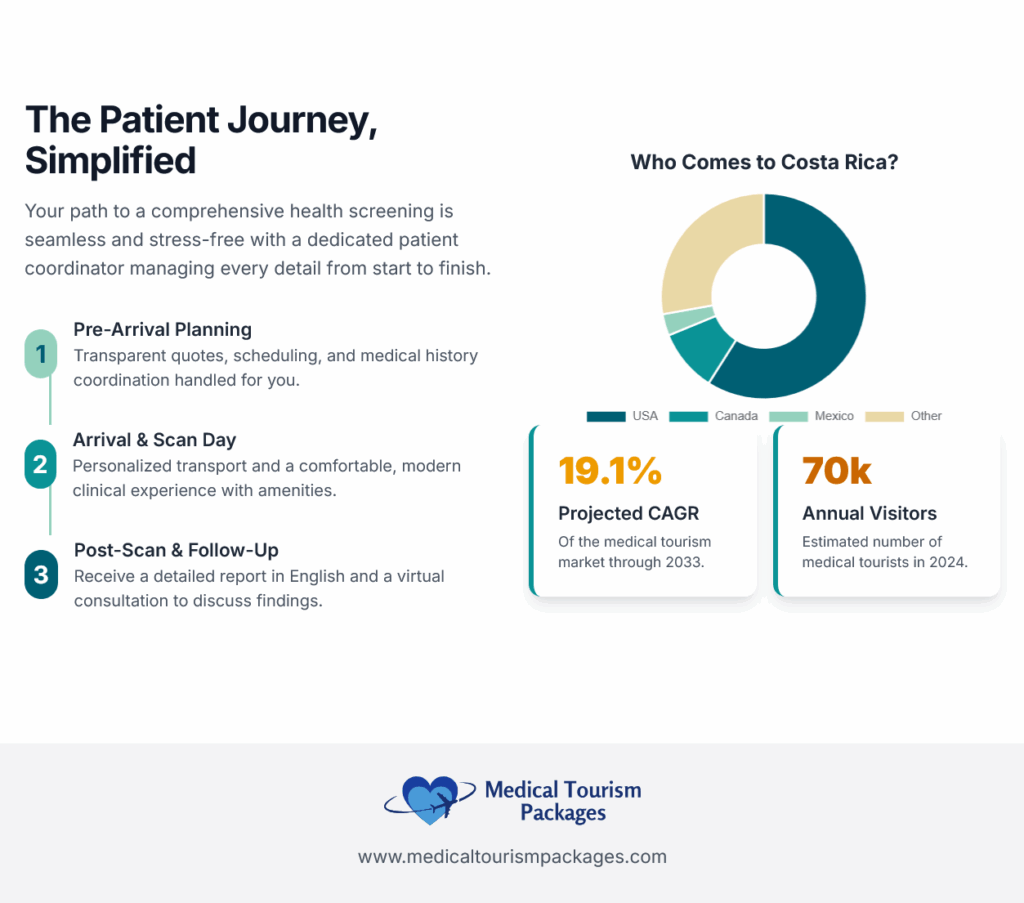
No medical test offers perfection. However, if you prefer comprehensive data and would rather have information than uncertainty, a full body MRI may be appropriate. Just be aware that insurance rarely covers screening scans, and most physicians won’t order them without symptoms.
JCI Accreditation and Safety Standards
JCI accreditation represents rigorous standards. Hospitals undergo inspection every three years. The review covers:
- Medication storage protocols
- Infection prevention measures
- Emergency response procedures
- Staff competency verification
CIMA has earned their fifth consecutive accreditation. Clínica Bíblica has maintained theirs for 15 years. This consistency demonstrates commitment to quality.
Costa Rica’s Ministry of Health regulates medical devices similarly to the FDA. MRI machines require technical specifications filing, proof of approval in their country of origin, safety documentation, and regular inspections.
Radiologists obtain licenses through the Colegio de Médicos y Cirujanos. Without proper licensing, they cannot practice. Many private hospital radiologists completed their training internationally.
What’s Included in All-Inclusive Packages
A comprehensive package includes:
- The MRI scan (specify 1.5T or 3T)
- Contrast dye if needed
- Radiologist interpretation
- English report
- Digital images (DICOM format)
- Virtual follow-up consultation
- Bilingual coordinator
- Airport pickup and all transportation
The price is fixed and transparent. No unexpected radiologist fees or separate charges for contrast agents.
Recovery and Wellness Options
Costa Rica promotes “Pura Vida”—pure life. Following your scan, consider taking advantage of recovery options. Some packages include:
- Boutique hotel stays
- Spa treatments
- Guided nature walks (easy ones)
- Healthy meal plans
This certainly beats waiting in an airport hotel.
Future Technology: AI Enhancement
Ezra and Subtle Medical have FDA-cleared AI technology that reduces scan time by 60%. Images maintain sharpness while patients spend less time in the scanner. This benefits everyone involved.
Costa Rican hospitals haven’t yet adopted this technology. When they do, “Faster, AI-Enhanced Full-Body MRI in Paradise” would create a compelling value proposition.
Making Your Decision
Here’s what matters: Costa Rica offers the same JCI-accredited hospitals, internationally trained radiologists, and 1.5T/3.0T MRI machines as the U.S. Some facilities include Whole-Body Diffusion-Weighted imaging. All for $500 to $900.
The $499 Ezra scan creates new competition. However, they don’t provide airport transportation, bilingual coordinators, or 24-hour results. And they certainly don’t offer beach recovery options.
If you only need a scan, waiting for an Ezra appointment might work. If you want comprehensive service plus the opportunity to recover in a country known for “pure life,” Costa Rica remains a strong choice.
Frequently Asked Questions
How much is a full body MRI in Costa Rica?
Between $500 and $900 at reputable hospitals. This price includes the scan, radiologist’s reading, English-language report, digital image copies, and follow-up consultation—approximately 65-80% less than typical U.S. prices.
How much would it cost for a full body MRI scan?
Costa Rica: $500-$900. United States: $2,000-$12,000 at hospital rates, though Ezra now advertises $499 scans. Canada: CA$3,250-CA$3,600. Mexico: US$400-$1,117. Panama: $500-$850. Colombia: $450-$1,500.
Is it worth getting a full body MRI scan?
Research indicates serious, treatable findings in approximately 3.6% of healthy individuals, while “incidental” findings that prove benign appear in roughly one-third of scans. The American College of Radiology notes that routine whole-body screening isn’t recommended. You’ll need to consider the potential for early detection against the costs, anxiety, and possible follow-up testing.
Can you get an MRI on the whole body?
Yes—modern scanners can image head-to-toe in one session (about 60-90 minutes). Costa Rica’s Hospital Clínica Bíblica markets it as “Cuerpo Entero,” while Hospital Metropolitano offers Whole-Body Diffusion-Weighted MRI covering brain, spine, organs, vessels, and soft tissues.
How long does a full-body MRI take?
The scan itself lasts 60-90 minutes. Including check-in and preparation, plan on 2-3 hours total. Preliminary images are often reviewed immediately; a full written radiology report is typically ready within 24-48 hours—much faster than the standard 1-7 business-day turnaround in the U.S.
Can you pay for a full-body scan?
Yes. Since insurance rarely covers screening MRIs, most patients self-pay. Costa Rican hospitals accept credit cards, wire transfers, and sometimes Bitcoin. Medical tourism facilitators can manage the logistics if you prefer professional assistance.
What are the downsides of a full body MRI?
The scan is loud and lengthy, and some patients experience claustrophobia (bore diameter is approximately 70 cm). Cost remains $500-$900 in Costa Rica. Patients with pacemakers or certain metal implants cannot be scanned. About 36% of scans reveal benign anomalies that may still require follow-up imaging or biopsies.
Is a full body CT scan better than a full body MRI?
CT and MRI serve different purposes. CT uses ionizing X-rays, operates faster, and excels at bone and lung detail. MRI uses magnetic fields, involves no radiation, and provides superior soft-tissue contrast. For asymptomatic screening, MRI’s lack of radiation typically makes it the preferred choice.
How much is a full body MRI scan in the US?
Hospital prices range from $2,000 to $12,000. Dedicated screening centers charge $2,300 (iVIE, Los Angeles) to $4,499 (Prenuvo, New York). Ezra recently introduced $499 AI-assisted scans, though availability remains limited.
What is covered in full body MRI?
The scan images the brain, entire spine, heart, lungs, liver, kidneys, pancreas, spleen, pelvic organs, major blood vessels, muscles, and soft tissues—detecting lesions as small as 2 mm.
Why would a doctor order a full body scan?
Physicians rarely order whole-body MRI for screening purposes. They typically reserve it for monitoring known cancers, evaluating systemic symptoms (such as unexplained pain or weight loss), or examining high-risk patients (genetic syndromes, metastatic work-ups). Self-referred patients usually pay out of pocket for screening scans.
What is the cost of a full MRI?
Whole-body scans in Costa Rica cost $500-$900 all-inclusive. Single-region MRIs cost less—for instance, Cenrad charges approximately $115 for interpreting one area. In the U.S., single-area MRIs average around $925, though prices vary considerably. Always confirm what the quoted price includes.
Why Choose Medical Tourism Packages
Medical tourism facilitators eliminate the complexity of obtaining your scan in Costa Rica. We understand the system, speak both languages, and manage the logistics that can transform a straightforward medical procedure into administrative chaos.
We partner with JCI-accredited hospitals equipped with the latest MRI technology and internationally trained radiologists. Our packages include everything—your scan, reports, transportation, and assistance with billing departments to prevent unexpected charges.
Planning medical travel differs significantly from booking a vacation. You need someone who understands the distinction between 3T and 1.5T machines, who comprehends Whole-Body Diffusion-Weighted imaging, and who can ensure your DICOM files reach your physician back home.
We’ve accumulated years of experience identifying potential issues and preventing them. From your arrival to your departure with results in hand, we ensure a smooth process.
Eliminate uncertainty. Obtain your full body MRI in Costa Rica with professional guidance and comprehensive support throughout your journey.

